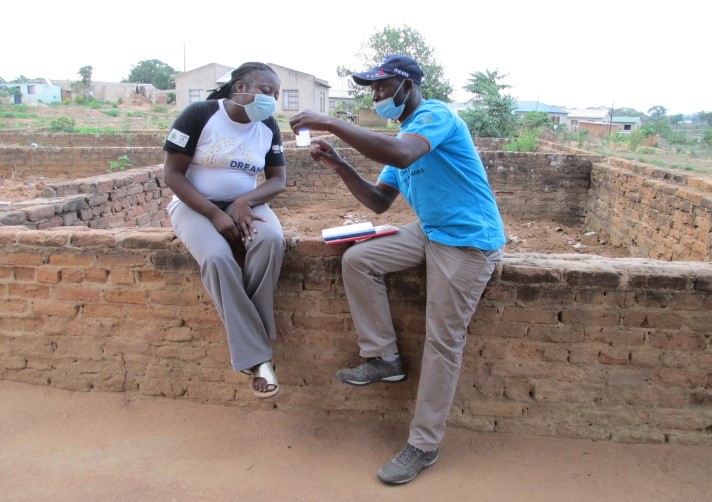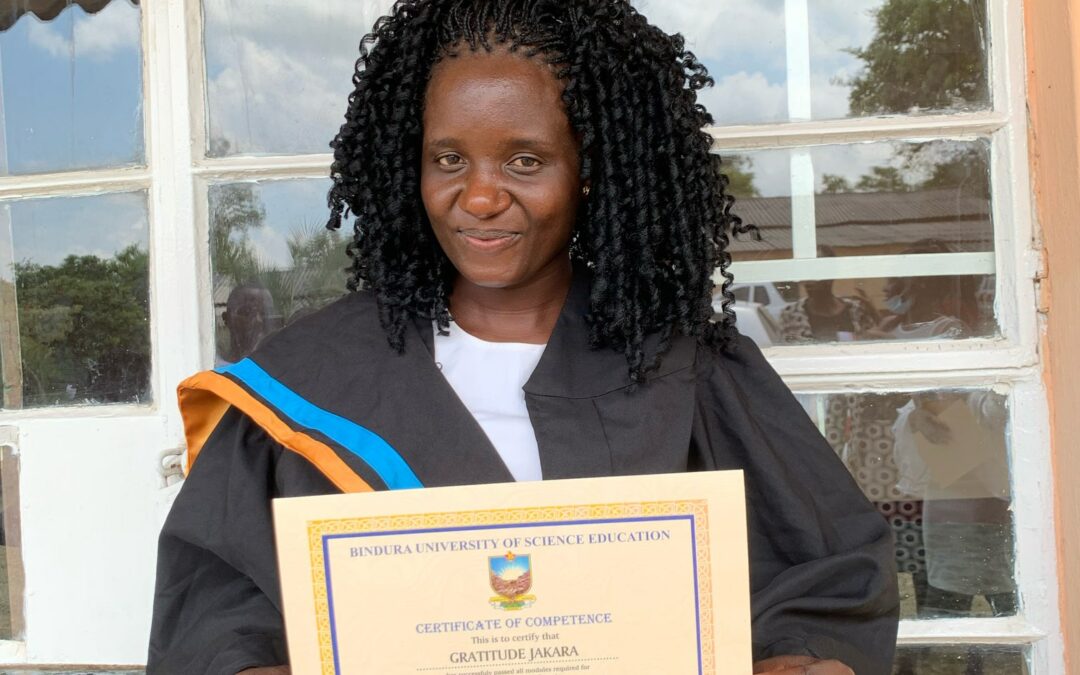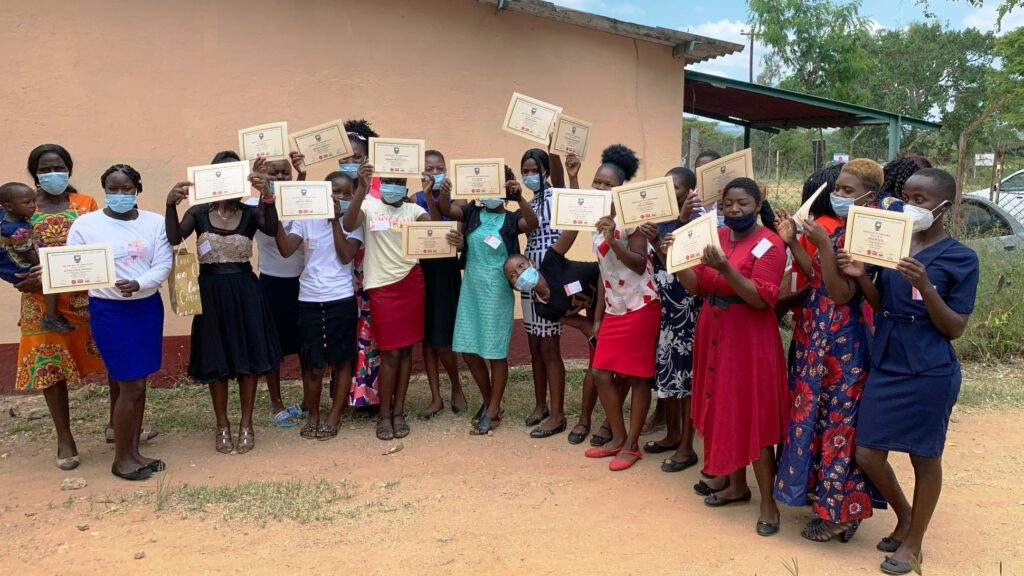
by dapp | Mar 24, 2022 | Blog, News
As Humana People to People and its members mark World Tuberculosis Day, we are spotlighting the work of our Total Control of TB Program. The model delivers health services directly to hard-to-reach people, whether in the cities or rural areas.
Part of our programme model is to meet people at their doorstep with information about TB, provide them with the opportunity to receive TB screening, collect samples and deliver them to the laboratories for analysis.
This helps us treat people as early as possible and improves the provision of quality TB services and treatment achievement rates.
Humana People to People is implementing Total Control of TB Programs in Angola, Mozambique, Malawi, Democratic Republic of Congo, Guinea Bissau, Zimbabwe and Laos. Most of the programs are targeting early TB detection, referral for TB treatment, support for adherence treatment and care.
Several of the TB programs integrate creation of community network support linkages with health centres and investment in modern scientific equipment which help to detect resistant TB including Multi-Drug Resistant TB at local clinics and district hospitals.
Humana People to People is supporting the theme – “Invest to End TB. Save Lives” which conveys the urgency to invest in the provision of resources required to improve the fight against TB and achieve the commitments to end TB made by global leaders.
Talking about the progress of TB programs, Snorre Westgaard, Chairperson of Humana People to People said:
“Now more than ever, the world needs programmes that have been tried and tested in communities in Africa and Asia. The race to end the TB epidemic belongs to everyone, and the centre of our TB response program shows the success of models that are community-driven, people-centred and offer locally-led results.
“We put resources into the human capacity building – healthcare professionals and community project activists, infrastructure investment in advanced TB diagnostic machinery at local clinics and district hospitals, and creating synergies between communities and health institutions.”

by dapp | Mar 10, 2022 | Blog, News
Ponesai Vanhu Technical College (PVTC) – a Development Aid from people to People DAPP Zimbabwe project in partnership with Chaminuka Training Center (CHAMTEC) and Leonard Cheshire Disability Zimbabwe (LCDZ) conferred 351 students with Bindura University recognized certificates at a colorful ceremony held at PVTC in Shamva.
The 351 graduates, (180 males, 171females and 43 youths with disabilities) from disadvantaged backgrounds completed short term courses under the TVET for All Through Public-Private Partnership in Zimbabwe project funded by Vet toolbox; Co-funded by the European union and the German cooperation.
In a speech read on her behalf at the close-out and graduation ceremony, Minister of Youth, Sports, Arts and Recreation Honorable Kirsty Coventry said, partnerships in education and training are vital for economic and social development. “Public Private Partnerships (PPPs) in skills development are a crucial vehicle for human development and it is encouraging to see the participation of business enterprises through work-based learning for the students”
She applauded DAPP and its partners for paying attention to gender equality and learners with disabilities through the 50% women 15% disability recruitment quarters. “I am happy to see inclusivity in the form of infrastructure and training tools adaptation at both institutions to accommodate students with disabilities as well as recruitment of young women”

Young women graduate under the TVET for all program
Speaking on the same occasion, DAPP Zimbabwe Chairman Charles Mutizira reiterated DAPP’s support to Governments’ Human Capital Development initiatives through offering access to affordable quality technical and vocational skills for employment, decent work and entrepreneurship “DAPP Zimbabwe remain committed supporting the Government’s efforts to achieving sustainable development Goal 4 of ensuring inclusive and equitable quality education for all”
Minister Of State For Mashonaland Central Provincial Affairs And Devolution Honourable Monicah Mavhunga also commended DAPP and its Partners for awarding start up kits to 50 outstanding students saying it will help kick start their economic activities. “These business start-up kits will give disadvantaged youths an opportunity to start their businesses and contribute to national development ‘
Project beneficiaries expressed their gratitude and hope for the future saying the skills acquired will allow them to meaningfully contribute to their communities. Motor Mechanics graduate Lisa Madzikova said “As a young woman, I have broken through barriers and I have gained the skills I have acquired are the key to unlocking my future through self-employment . The start-up kit will boost my business “
Munashe Nyamutukwa, a young person living with a disability acknowledges that though the rate of youth unemployment is high in Zimbabwe, it is higher for persons with disabilities who lack skills training. “I appreciate that the TVET for all program catered for persons with disabilities through the provision of sign language interpreters, adaptable training materials and accessible workshops for physically disabled. Such provisions made it easier for us to attain the vocational skills which are appropriate to the local labor market”
The (TVET) for All through public-private partnerships in Zimbabwe began in November 2019- February 2022 to strengthen skills development systems that improve employability, promote access to employment opportunities and increase incomes for inclusive and sustainable growth for all young women and young men. The project’s main objective was to improve completion of vocational education and training and transition into the labour market among disadvantaged and vulnerable youth in the Shamva and Bindura Districts of Zimbabwe.
The project was implemented with DAPP as the lead Partner, and Chaminuka Vocational Training Center and Leonard Cheshire Disability Zimbabwe as co-applicants, Bindura University of Science Education and Higher Life Foundation as Associates. The project awarded scholarships to 437 youth from disadvantaged backgrounds



